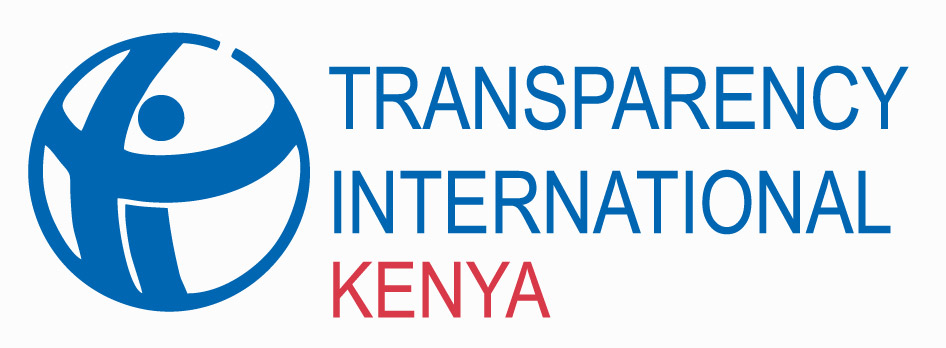The Land and Corruption in Africa Project
Project Overview
TI-Kenya is currently implementing a project founded by the German government and coordinated by TI-Secretariat titled ‘’Land and Corruption in Africa’’. The project target areas are Nairobi and Kwale Counties. The project seeks to explore mechanisms on how people-centered land-governance can be supported at national and local levels, and land-related corruption can effectively be addressed in the country. The purpose of the initiative is to build linkages with state and non-state actors involved in land governance, and gather and share relevant data on corruption in the land sector, its trends, nature and strategies that have been utilized to combat it. This will contribute to the development of a body of evidence on land and corruption in Africa having assessed various laws, regulatory provisions and practices and how well these work.
The project seeks to foster existing efforts of citizens and organized groups in the fight against corruption in the land sector. Furthermore, the initiative will actively support the development, implementation and evaluation of various social accountability tools and approaches that actively engage citizens and curb corruption around land (like public dialogue forums, social compacts/development pacts, advocacy and legal advice services).
The main goals of the project are:
1. Enhancing transparency and accountability in land management within Kenya.
2. Promoting the realization of secure tenure rights for land within Kenya.
3. Significantly curbing corruption in land management and land administration within Kenya.
Project Objectives
1. A strong citizenship of men and women of different generations and social and cultural backgrounds that is informed of their land and tenure rights, legally empowered to defend their rights, aware of solution mechanisms, and demands transparency and accountability and citizen participation and oversight from their governments to end corruption in the land sector.
2. Stakeholders from civil society, private sector and government who are engaged in land related anti-corruption initiatives, systematically act to promote good land governance, and prevent corruption in the land sector nationally.
3. Intergovernmental institutions, governments, and businesses have strong, equitable, and just procedures in place to prevent and redress corruption in land distribution, land acquisition, and land dispute management, as well as to sanction infractions.
Key result areas for the project
Result 1: A strong citizenship of men and women of different generations and social and cultural backgrounds is informed of their land and tenure rights, legally empowered to defend their rights, aware of solution mechanisms, and demands transparency and accountability and citizen participation and oversight from their governments to end corruption in the land sector.
Result 2: Stakeholders from civil society, private sector and government are engaged in land related anti-corruption initiatives, systematically act to promote good land governance, and prevent corruption in the land sector nationally, regionally and globally.
Result 3: Intergovernmental institutions, governments, and businesses have strong, equitable, and just procedures in place to prevent and redress corruption in land distribution, land acquisition, and land dispute management, as well as to sanction infractions.
The project focuses on outreach that will increase knowledge levels on corruption and anti-corruption strategies in the land sector among Kenyans, directly and through local mass media. This is intended to contribute to the level of responsiveness by the county government and participation by citizens
Publications
1. Land Sector Baseline Survey, Political Analysis and Risk Mapping in Kwale & Nairobi Counties
TI Kenya designed and conducted a study encompassing a baseline survey; a political analysis; and a corruption risk mapping. The study sought to establish the corruption risk, prevalence and the nature of corrupt practices in the land sector in target ‘communities’ (areas and/or sectors) in Kwale and Nairobi County. The Land Sector Baseline Survey, Political Analysis and Risk Mapping can be downloaded here.
2. Land Corruption Risk Mapping Tool
TI-Kenya with support from TI Secretariat and in partnership with the Centre for Rural Development (SLE) at Humboldt University, students from Technical University of Kenya (TUK) and Strathmore University developed a generic land corruption risk mapping instrument. This was based on research work in Kenya and on literature review from other sectors and countries. The land corruption risk map was based on research through: Analysis of existing literature and material such as legal documents, and documentation on pending and already executed land transactions, and collation of empirical data. The empirical research included key-informant interviews with relevant public officials, civil society organizations, and citizens as users of administrative services and land users as well as focus group discussions with communities of interest.
The tool will be used by TI-Kenya and its partners, the National Land Commission, the Ministry of Lands, civil society, academia in Kenya, and members of the public. The map will be an advocacy tool that will help NGOs, governmental institutions, and other actors in Sub-Saharan Africa to systematically identify and assess corruption risks in land governance and to develop effective counter-measures.
The handbook is divided into three phases:
1. Research on the historical, legal, and institutional context of the respective land governance system;
2. Conduction of a participatory multi-stakeholder workshop to identify and assess corruption risks in key land governance processes:
The Handbook on Land Corruption Risk Mapping can be downloaded here
